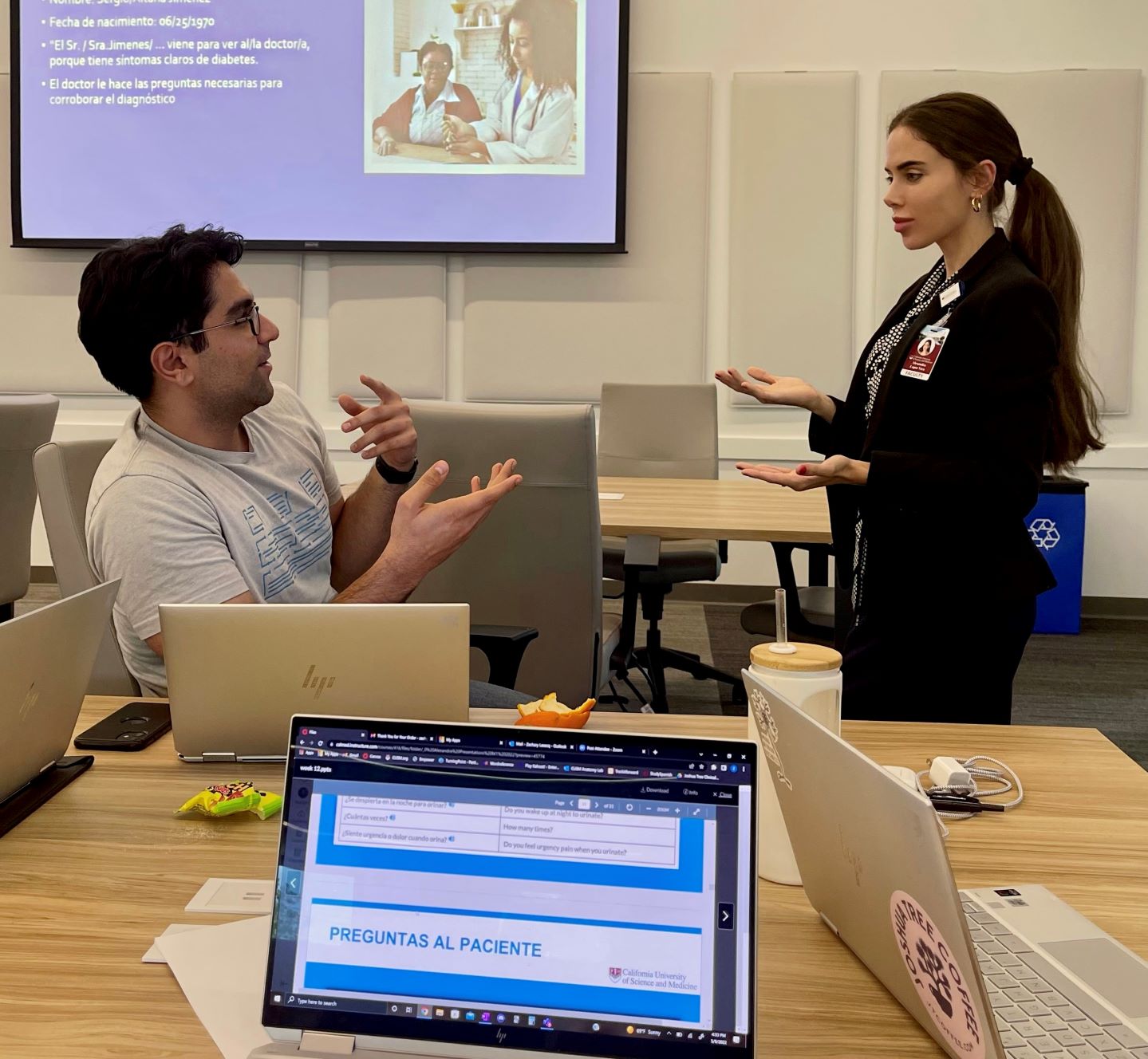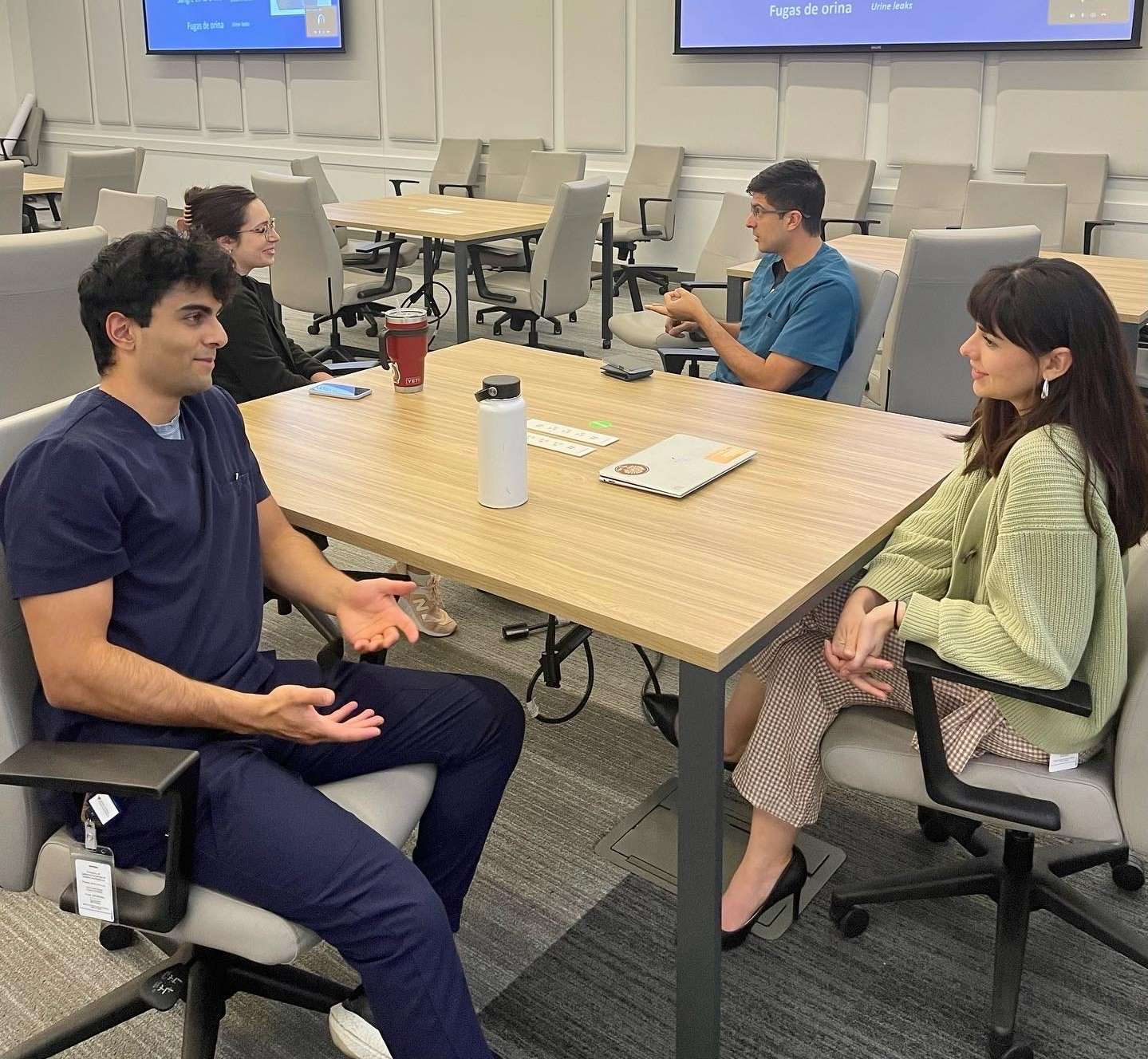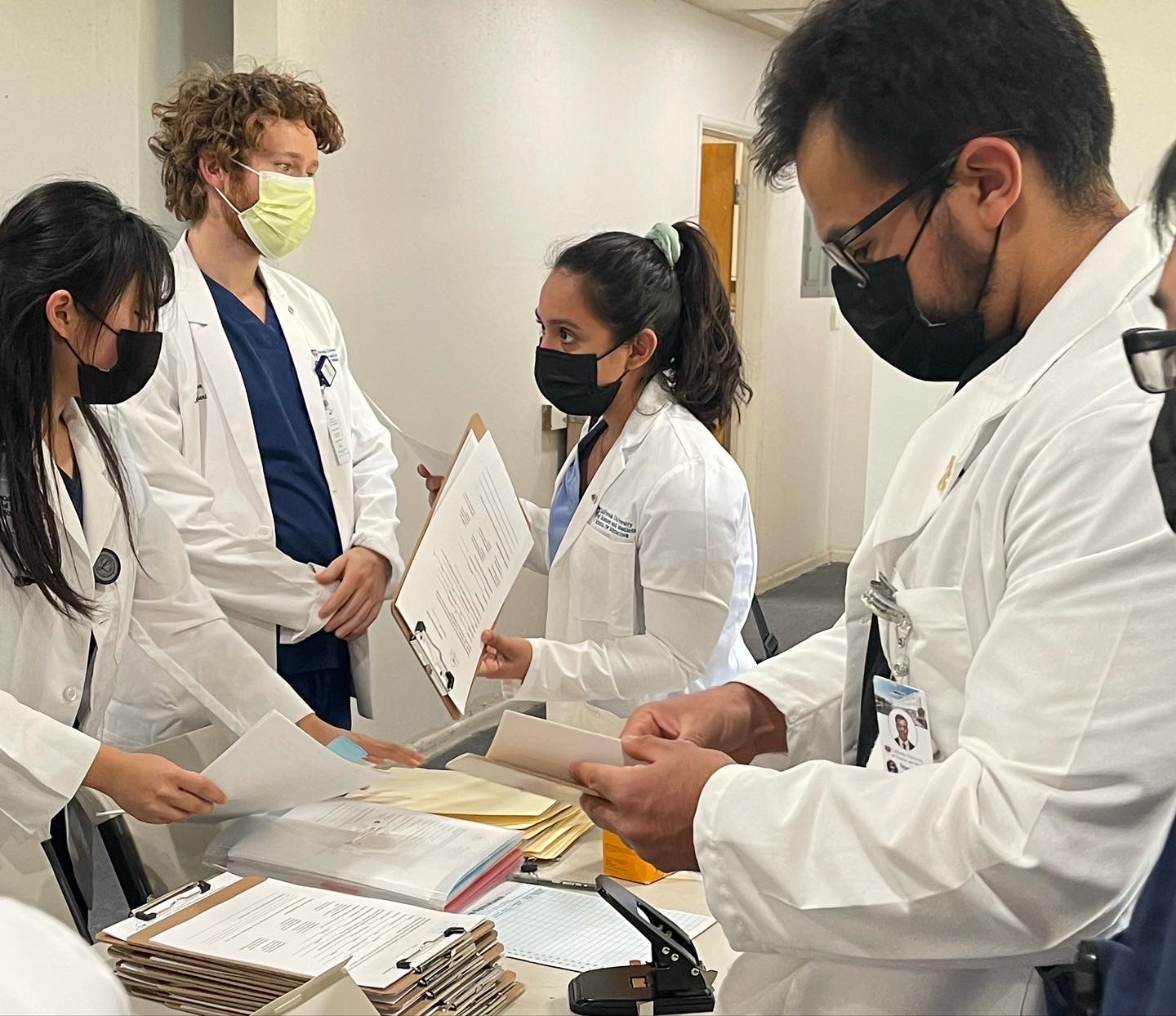Vida, Medical Spanish Program
Vida Program Description
Linguistic barriers between Spanish-speaking patients and non-Spanish-speaking healthcare providers pose significant challenges and contribute to inappropriate treatment within our nation's healthcare system. Patients often face difficulties due to the lack of shared language proficiency and require assistance in their native language. Therefore, healthcare professionals must possess effective communication skills in both conversational and medical Spanish.
Starting in the academic year of 2024/2025, the Vida program will introduce two essential courses: Spanish for Healthcare Professionals I (for M1 students) and Spanish for Healthcare Professionals II (for M2 students). These courses will be mandatory for all students and seamlessly aligned with the core MD curriculum. By integrating these specialized language courses, Vida aims to equip future healthcare professionals with the necessary linguistic and cultural skills to communicate effectively in conversational and medical contexts. This comprehensive approach ensures the development of culturally competent care for the growing Hispanic patient population.
Enrollment in the enhanced Vida program is open to all students, regardless of their proficiency level in Spanish. The curriculum is designed to accommodate individuals with varying linguistic competence, creating an inclusive environment that nurtures growth and proficiency in medical Spanish. This approach allows students at different stages of their language journey to benefit from the program's offerings and contribute to their linguistic and cultural competence in healthcare settings. Additionally, students who wish to enhance their medical Spanish proficiency will have access to online asynchronous courses as supplementary resources.


Vida Program Overview
Required Components
Spanish for Healthcare Professionals I: Two-semester course that includes a weekly session with the Medical Spanish program Director to review medical Spanish grammar, vocabulary, and linguistic structures aligned with the system-based curriculum. It also provides practice with Standardized Patients, and another weekly session with a college group to work on the system-based Task Syllabus can be found here.
Spanish for Healthcare Professionals II: One-semester course that includes a weekly session with the Medical Spanish program Director to review medical Spanish grammar, vocabulary, and linguistic structures aligned with the system-based curriculum. It also provides practice with Standardized Patients and another weekly session with a college group to work on the system-based Task. The syllabus can be found here.
Co-Curricula Components
In addition to the two required medical Spanish courses, the Vida program offers a comprehensive range of complementary co-curricular components. These components encompass various activities, including elective courses, formative assessments, volunteering activities, abroad experiences, and research opportunities. These co-curricular elements enhance language proficiency and provide practical experience in authentic healthcare settings. Here are some examples:
Elective Courses
Students can choose from elective courses during their clinical year. These courses typically span a duration of 4 weeks and are available in an online format. One illustrative example is the "Strategies for Effective Spanish Communication in Medical Settings" course. For detailed information, please refer to the Strategies for Effective Spanish Communication in Medical Settingssyllabus.
Formative Assessment
To assess the proficiency level of students' Spanish speaking skills, the Vida program utilizes the Formative Objective Structured Clinical Examination (OSCE) and Multiple-Choice Exam (MCE) as valuable assessment tools.
Volunteering Activities in Spanish-Speaking Contexts: Students can volunteer at various organizations, such as the Inland Empire Free Clinic or the Lestonnac Free Clinic, which cater to Spanish-speaking communities.
Abroad Experience: Students can apply for Global Health funds at CUSM, which can be utilized to support a Spanish experience abroad through the esteemed Child Family Health International program.
Medical Spanish Research
Within the Vida program, students are given significant opportunities to collaborate with faculty members from the Department of Medical Education. These collaborations enable students to participate in research or creative projects in Medical Spanish. Here are some previously published works related to the Vida program:
- Lopez Vera, A., Thomas, K., Trinh, C., et al. A Case Study of the Impact of Language Concordance on Patient Care, Satisfaction, and Comfort with Sharing Sensitive Information During Medical Care. J Immigrant Minority Health (2023).
- Chang, K.E., Lewis, J. & Lopez Vera, A. A comprehensive medical Spanish curriculum model: the Vida Medical Spanish Curriculum. BMC Med Educ 23, 488 (2023).
The program will continue to be overseen by the program director, Dr. Lopez Vera, who, along with other MD faculty, will ensure the successful implementation of the Vida program.
Questions regarding the Vida, Medical Spanish Program?
For any inquiries regarding the Vida program, please get in touch with the Vida Program Director
Dr. Alexandra Lopez Vera
Instagram:@cusmVida
